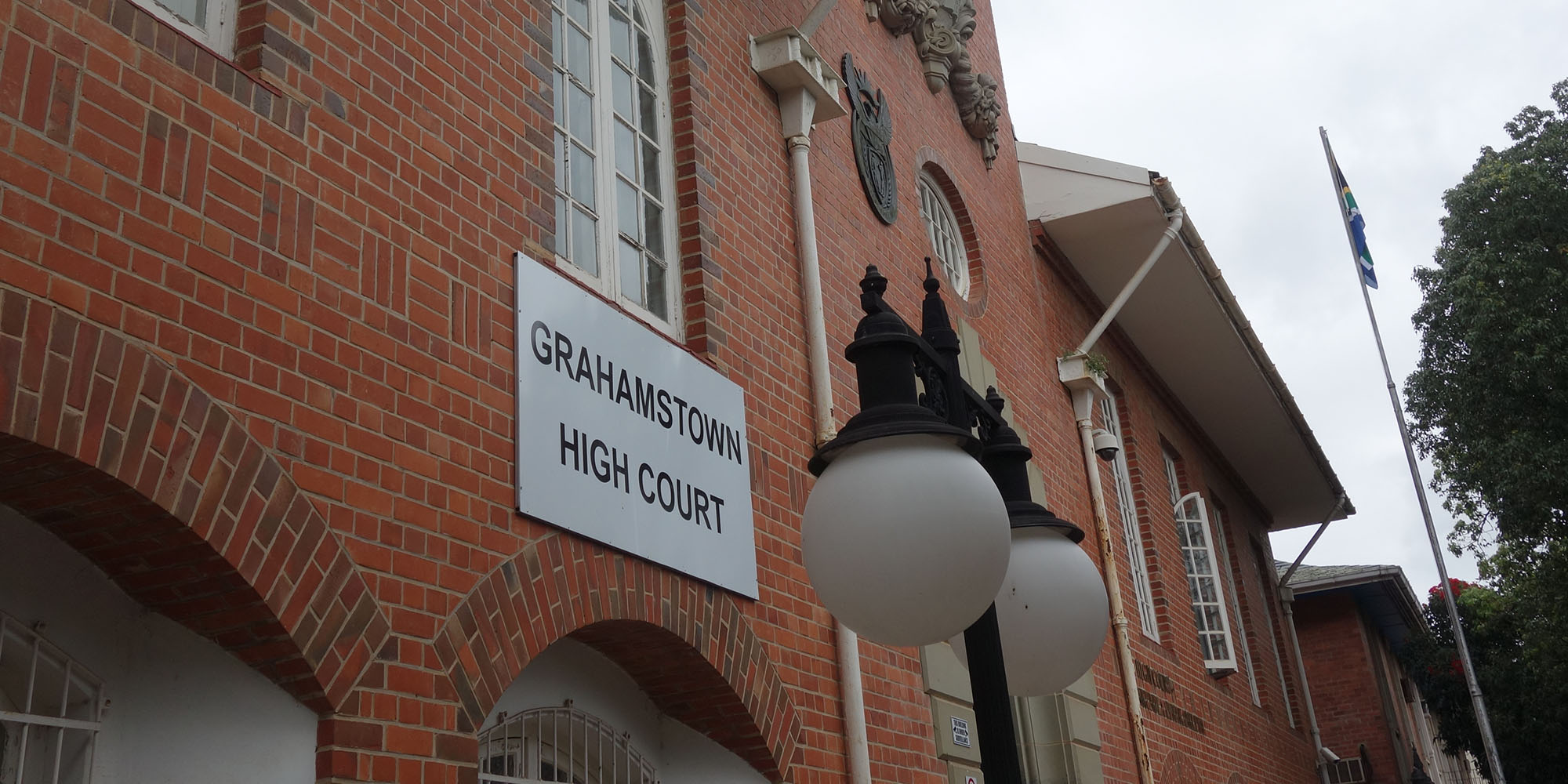The ruling was handed down by Judge Justin Laing in the Makhanda High Court in February in an application to appeal against a ruling in a civil matter involving a failed chicory crop and who exactly was responsible for the 2017 drought.
Let’s just say it was complicated.
Advocates Mbulelo Nguta and Chris Mzamo, instructed by Mgangatho Attorneys and representing the applicant in the matter, were excoriated in an unprecedented fashion by Laing, who ultimately dismissed their client’s leave to appeal.
“The range and depth of the attack on the court’s findings are, quite simply, astonishing,” Laing fulminated. “In another context, the language and tone of the documents might evoke a smile and a shrug, but this is not another context.”
While the court had “to be mindful of the need to approach an application for leave to appeal objectively, dispassionately, and without being unduly sensitive to the criticism levelled against it”, it should also “on occasion, draw a line and indicate, unequivocally, when counsel’s conduct falls below the standard required of an officer of the court.”
Laing opined that the work of a court “and of all who appear before it is a serious business. The words that are spoken, the words that are written, and the decisions that are made, have far-reaching consequences for the litigants.”
The “language and tone used in the present application and heads of argument are unacceptable,” said the judge. “They undermine the decorum and dignity of the court and prevent the upholding of responsibilities.”
Legal thuggery in plain English.
Team no-show
To aggravate matters, said the judge, “the applicants’ lead counsel failed to appear on the day of the hearing, provided no apology or excuse for his absence, and left his junior (who was clearly unprepared) to face the court’s discontentment. This, too, is unacceptable.”
Also, the drafter of the documents for the applicant, said Laing, had accused the court of “failing to ask the right questions” and that the judge had “simply misunderstood the law” and also findings “on the date of the contract suffers [sic] from serious shortcomings”.
The court had, the documents said, “hurtled towards an illogical conclusion”, with the drafter of the documents accusing the judge of “a remarkable degree of arbitrariness and favourable bias [sic] towards the defendant’s witness”.
Read more in Daily Maverick: Wanted — decent candidates to be SA’s next judges
With regard to a costs order in favour of the defendant, the court had invited written submissions on why it should not be made de bonis propriis (straight from the pocket).
Dalification of the courts?
Counsel for the defendants had drawn the court’s attention to an article by Judge Rishi Seegobin titled “Restoring dignity to our courts: the duties of legal practitioners”.
Seegobin observed that there had been “a growing tendency for legal practitioners to use ‘insulting, inappropriate, vulgar, and disparaging language’ towards judicial officers, staff, and fellow practitioners”.
“This type of behaviour is symptomatic of a general lack of respect on the part of certain legal practitioners towards the bench. The extreme lengths to which some of them will go in order to undermine the legitimacy and functioning of our courts should be a matter of grave concern to us all,” wrote Seegobin.
The brand of free-range, smarmy courtroom bravado so characteristic of advocate Dali Mpofu’s approach in the numerous court battles he has fought and lost, might have prompted a directive from the Office of the Chief Justice this week.
Constitutional Court registrar Sibusiso Mapossa set out the time parameters for legal counsel appearing in future before the apex court.
At the hearing of any matter, the directive went, 30 minutes will be given to each party to address the court “without interruption” on all points deemed important.
When done, judges will ask questions and thereafter there will be 10 minutes for a reply. Any amicus represented would have to also comply with these time limits.
Death by affidavit is an ace in the pack of a handful of legal practitioners who have, over the years, sought to filibuster the legal system.
It is a trick used to perfection by suspended Western Cape Judge President John Hlophe, his legal representative Barnabas Xulu and suspended public protector Busisiwe Mkhwebane’s favoured legal mind, Paul Ngobeni.
Read more in Daily Maverick: Death by affidavit: John Hlophe throws a 569-page whopper at court to stop impeachment
Just the other day, during former president Jacob Zuma’s private prosecution of the State prosecutor in Jacob Zuma’s Arms Deal corruption matter, Billy Downer, and News24 journalist Karyn Maughan, Mpofu sucked five hours out of everyone’s lives.
In the end, Maughan’s advocate, Steven Budlender, accused Mpofu of not presenting a legal argument, but “a speech for purposes of television, and that is most unfortunate”.
Judges Gregory Kruger, Jacqui Henriques and Mokgere Masipa then used the opportunity to order Mpofu to wrap it up.
No more bullshit
Bullshit does not baffle legal brains, in other words, and Chief Justice Raymond Zondo has clearly had enough, as have Laing and Seegobin, and other judges who have spoken out.
While the Makhanda legal eagles had “apologised at the outset” to the court in the chicory matter, they had gone on, nonetheless “to inform the court that they had sought advice from two senior counsel (unnamed) and had been advised that the application for leave to appeal did not border on a personal attack or a gratuitous insult. Instead, they were advised, so they say, that the court ought to be ‘thick-skinned’,” noted Laing.
With regard to a costs order made in favour of the defendant, the court had invited written submissions on why it should not be made de bonis propriis. A litigant, said the court, “ought not to be punished for the conduct of his or her legal representatives”.
It appears as if Laing’s searing evaluation of the legal documents in the matter over which he presided has not yet piqued the interest of the Legal Practice Council (LPC), which claims to “set norms and standards” for the profession.
In November 2022, GroundUp took the LPC to court, with the editors of the publication noting that most of the complaints received by the publication from readers were about the LPC.
“The letters from our readers, complaining about crooked lawyers, indicate that the LPC has been failing to do its job. Last year, in a scathing ruling, the Western Cape High Court directed the LPC to investigate its systemic failures,” said the editor.
This was in relation to veteran journalist Ray Joseph and the publication’s groundbreaking work on exposing deep fraud and corruption at the National Lotteries Commission
Lawyer Lesley Ramulifho, whom GroundUp accused of benefiting from R60-million in lottery grants, was reported to the LPC by the publication.
“Astoundingly, the LPC’s investigating committee dismissed our complaint, without sending it to a disciplinary hearing. A Mr Y Mayet was the committee which ruled in Ramulifho’s favour, saying GroundUp did not prove its case. The effect of his ruling would appear to be that lawyers can commit forgery in court papers and face no discipline,” stated GroundUp. DM





